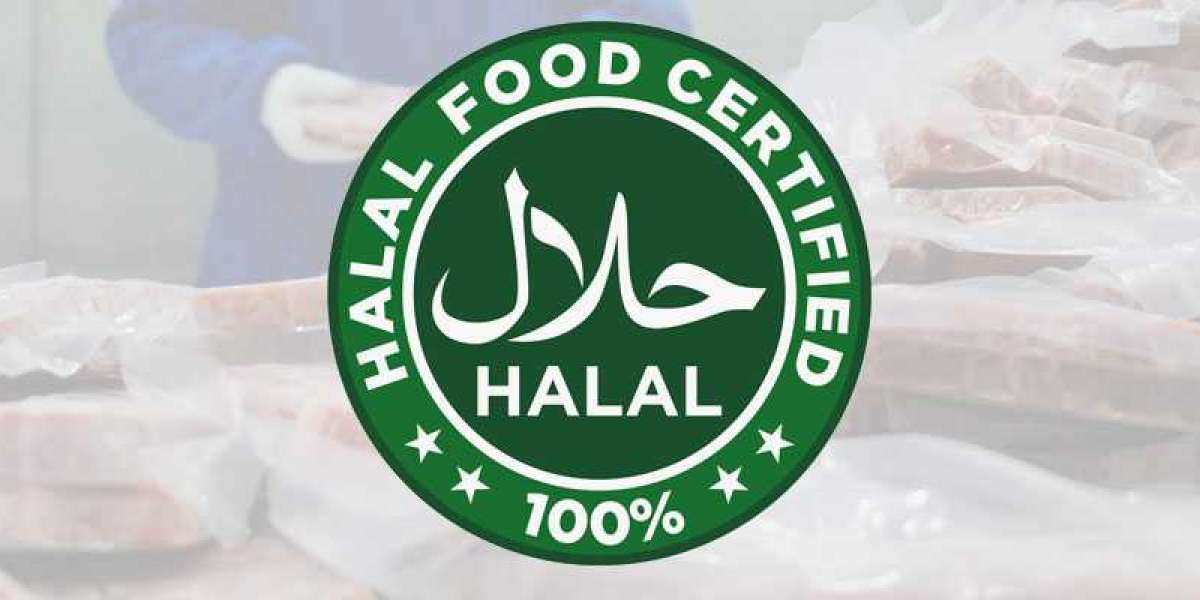In recent years, Halal certification has grown increasingly significant, not only for Muslim consumers but also for global businesses aiming to expand into halal markets. With an estimated 2 billion Muslims worldwide, the demand for halal-compliant products and services has created a booming industry valued in the trillions of dollars. Whether you're a food manufacturer, cosmetics brand, pharmaceutical company, or logistics provider, obtaining halal certification can offer a competitive edge and demonstrate your commitment to ethical and religious standards.
What is Halal Certification and Why Does It Matter?
Halal certification is a formal process that ensures products and services meet Islamic law (Shariah) requirements. The word "halal" means "permissible" in Arabic, and for Muslims, it's crucial to consume products that are allowed under Islamic principles. This doesn’t only apply to food; it also covers cosmetics, personal care items, pharmaceuticals, and even lifestyle services like finance, hospitality, and logistics.
The certification is typically issued by an accredited halal certifying body after a detailed inspection of ingredients, production processes, hygiene standards, and supply chains. Halal certification assures consumers that the product has been produced in a halal-compliant manner, free from contamination with haram (forbidden) substances such as alcohol, pork, or unethical ingredients. This transparency builds consumer trust and loyalty.
Industries That Benefit From Halal Certification
The scope of halal certification goes beyond food and beverages. Industries such as pharmaceuticals, cosmetics, tourism, logistics, and even e-commerce are finding value in halal-compliant operations. In the pharmaceutical sector, for example, halal-certified capsules and vaccines are now in high demand, especially in Muslim-majority countries.
Cosmetic brands are also increasingly seeking halal certification to cater to consumers who are cautious about the ingredients used in skincare and beauty products. Similarly, in the hospitality industry, hotels and resorts are incorporating halal-certified kitchens, prayer facilities, and Islamic banking services to attract Muslim tourists.
Steps Involved in Getting Halal Certification
Obtaining halal certification involves several stages. While the exact process may vary depending on the certifying body and the country, the general steps remain consistent. First, a business must choose a reputable halal certification agency. This agency should be recognized by both local and international authorities, especially if the business intends to export products abroad.
Once selected, the company submits a detailed application that includes ingredient lists, production processes, equipment used, hygiene standards, and supplier information. An audit is then conducted where inspectors visit the production site to ensure compliance with halal standards. If the facility meets all requirements, a halal certificate is issued, typically valid for one year.
During the certification period, businesses are subject to regular inspections and must maintain full compliance to retain their certification status. Any changes in suppliers, ingredients, or processes must be reported to the certification body for re-evaluation.
Halal Certification and Global Trade Opportunities
Halal certification opens doors to new markets. Countries in Southeast Asia, the Middle East, Africa, and parts of Europe have large Muslim populations that actively seek halal-certified products. With proper certification, companies can access these markets with confidence and legality.
In addition, international trade fairs, exhibitions, and government programs often require halal certification as a prerequisite for participation. For exporters, this certification can be a ticket to global growth, particularly in regions like Malaysia, Indonesia, Saudi Arabia, and the United Arab Emirates, where halal regulations are strictly enforced.
Challenges and Common Misconceptions About Halal Certification
One of the major challenges businesses face is navigating the different standards and certifying bodies across countries. What is considered halal in one region may have slight variations in another. For instance, Malaysia’s JAKIM has stringent rules compared to some other agencies, making it essential for exporters to understand the target market’s regulatory framework.
Another common misconception is that halal certification is only relevant to food products. While that was true in the past, today's Muslim consumers are becoming more conscious of halal standards across every aspect of life. This includes packaging, storage, logistics, and ethical business practices.
It’s also important to debunk the myth that halal certification is a complicated or expensive process. Many businesses have found it to be straightforward when guided by the right certifying body and supported by trained staff. The return on investment is typically high due to the increased market reach and consumer trust that comes with certification.
How to Choose the Right Halal Certification Body
Selecting a credible halal certifying agency is critical. Businesses should look for agencies that are recognized internationally, preferably those that are listed by the World Halal Council or acknowledged by importing countries. Transparency, professionalism, and consistency in auditing and standards are key qualities to look for.
It’s also helpful to seek guidance from local halal authorities or business chambers that support halal industry development. Some certification bodies offer consultancy services, training programs, and documentation assistance to simplify the certification journey.
The Future of Halal Certification and Market Trends
The future of halal certification looks promising, with digitalization and blockchain technology starting to play a role in certification and traceability. This ensures real-time tracking of products and prevents fraud, a growing concern in the global halal market.
Sustainability is another trend influencing halal certification. Many certifying bodies are now aligning their standards with ethical sourcing, animal welfare, and environmental sustainability. This appeals to modern Muslim consumers who value both religious compliance and social responsibility.
Additionally, countries are collaborating more than ever to unify halal standards, making cross-border trade more seamless. This harmonization of standards will likely reduce certification redundancies and foster global halal industry growth.
Conclusion: Why Businesses Should Embrace Halal Certification
In today’s interconnected global economy, halal certification is not just a religious label—it is a symbol of trust, quality, and ethical production. Businesses that invest in halal compliance demonstrate cultural sensitivity and a commitment to high standards. The benefits include greater access to international markets, enhanced consumer loyalty, and long-term growth potential.
As consumer preferences evolve, companies must adapt to stay competitive. For brands that want to establish a foothold in Muslim-majority countries or cater to ethically conscious consumers, halal certification is no longer optional—it’s a strategic necessity. And for those seeking reliable guidance in their certification journey, caratga stands ready to support businesses in achieving halal compliance with confidence.








